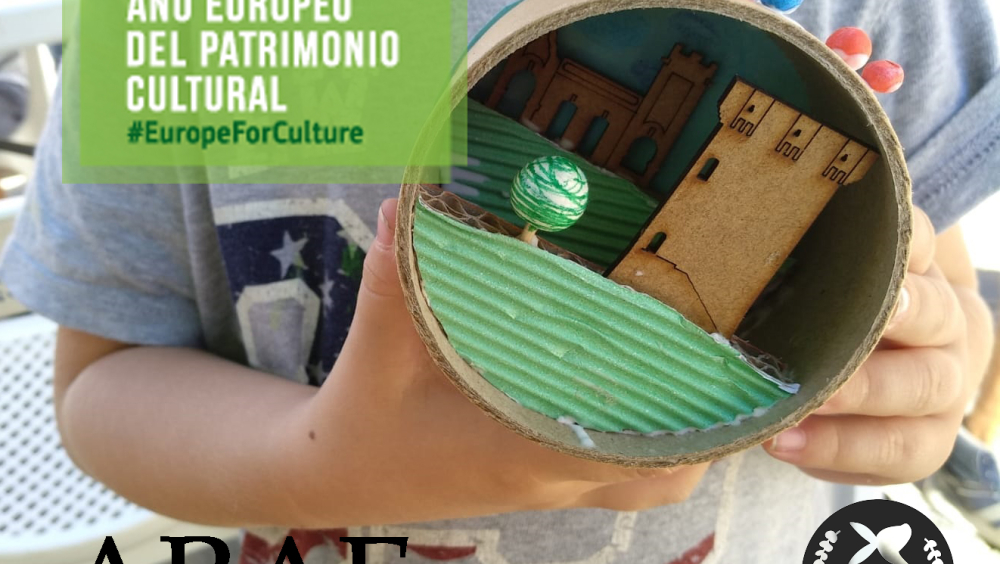Dioramas, our landscapes
Our cities are a conglomerate of cultures, architectures and historical spaces that possess a valuable own artistical and cultural heritage, often hidden and unknown. "We cannot love that we do not know/respect". Dioramas, our landscapes” is an activity that intends to promote local identity and civic pride to contribute in the implementation of the Faro Convention, recently signed by Spain.
All populations have the germ of sustainable development through their heritage, often hidden behind a lack of knowledge of the value of their own, of the identity values of the place. In this framework, we have organised a serie of patrimonial workshops for children called "Dioramas, our landscapes", in which we encourage interest in architecture, while facilitating the community's approach to its own landscapes. "Dioramas, our cultural landscapes" is a project in which we use tools to exchange knowledge and approach the local cultural heritage of the heritage communities with which we work. It is an educational proposal focused on children, which shows the importance of making experiences made with / for / by people and their neighborhoods around the cultural landscape. The activities go around the contemporary diorama - originally it was a display device to represent an image, models that try to encapsulate a scene- but now can be freely configured like a representation of individualized assets. This consists of a matrix element of cardboard tubes (3R -reduce recycle reuse- or zerowaste) which is fill with the defining elements of the participating citizens identity. It becomes a replica in a domestic scale of the rural landscape of the population, reinterpreted by each participant, who, together, define the identity of the heritage community.
The project is designed to be scaled, following the identification of risks in the pilot project, in any European population. It uses tools that provide scalability and transfer in a natural way. The objectives of the project are common in the European territory, since the problematic of the smallssettlements and peripheral neighborhoods without strong cultural and tourist values exists outside the cultural, social or physical frontiers. (Faro Convention)
